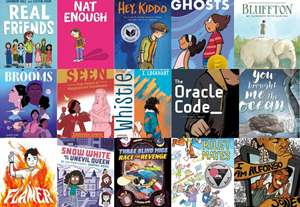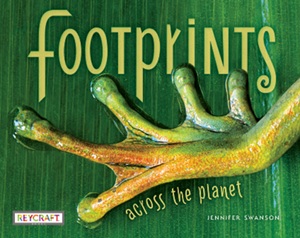As nonfiction authors, we know how integral research is to an authoritative and engaging nonfiction book. But we all also write fiction and have used research to enhance those projects, too. From developing back matter to enriching sensory details, finding facts helps us add depth and realism to our fictional work.
Here are six ways we feel research can benefit fiction writers.
1. Inspiration
You know what they say – truth is stranger than fiction. Of course, story ideas can come from your imagination. But looking for inspiration in real-life facts can yield impressive results. For example, a news story about a bizarre event might lead to a new plot twist. The latest scientific discovery from ScienceDaily could inform your villain’s world-altering invention. Or genealogical records from the National Archives could inspire character names and relationships. Research what interests you, whether it relates to your latest manuscript or not, and keep an open mind. You never know what might spark your creativity.
2. Setting the Scene
Do you want to write about a time or place you’ve never visited? Put yourself in that scene by doing photo research! If you’re not able to visit a specific time and/or place that you want to write about, do the next best thing and immerse yourself in that setting digitally. Check out travel blogs, look for articles about customs, traditions, and language, and find regional recipes online. Utilize tools like Google Earth to “visit” different places, take a virtual tour through the halls of famous museums like the Metropolitan Museum of Art, or dive deep in a Google Images search.
3. The Closest Thing to Time Travel
Both historical fiction and historical nonfiction demand research. You might be documenting an event you experienced or exploring a time when you weren’t even alive, but writing about those times of yore means you’ll need to find some resources to support your writing. Search for historical photos, oral histories, letters, diaries, and old newspapers through online collections and digitized archives. Some specialized repositories collect data from a specific event or time. For example, DENSHO collects resources around the incarceration of Japanese American people during World War II. If you’re writing about this time period, hearing interviews from survivors and seeing photographs from the time period is invaluable.
4. Imaginative Illustrations
Whether you’re an illustrator or not, you’ll want to gather information and reference photos that might be needed when the time comes to add art to the manuscript. Keep a digital and/or physical folder of images to examine. What are some of the creatures you’d see in this part of the ocean? What are some sample hairstyles and fashions of a specific time period? What type of plants grow in the environment where the story is set? Reference images can help answer all of these questions and more!
5. Accurate Dialogue
Fictional characters need to be three-dimensional, including how they speak. Mannerisms, catch phrases, word choice, and sentence length must be particular to each character in your story. But how do you make the dialogue accurate to your creations? Research. If you want to know how nuclear physicists talk, read interviews with them and academic articles they’ve written. If you want to know how somebody spoke in the 1860s, look at letters and diaries from that period. Find examples of communication that your characters might use and let that guide your dialogue.
6. Realistic World Building
Nothing kicks a reader out of a story faster than inaccuracy. If you’ve built a world based on our reality, you need to break the rules of that world deliberately and with purpose, not because you didn’t do your homework. For example, if you have a character who joins the computer club, you had better know your bugs from your binary. One wrong detail and your reader will stop suspending their disbelief. From exploring city maps to studying your character’s favorite hobby, getting the facts correct will not only make your story feel believable but it will also make it more intense.
These are some ways research can be of value to fiction writers.









